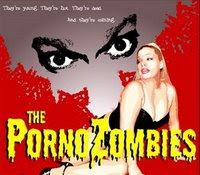Sunday, April 29, 2007
Redacted
Due to popular demand and my willingness to protect the not-so-innocent, the video previously posted in this space was temporarily pulled down for editing and will be replaced shortly.
In the meantime, this will have to suffice. Enjoy
Friday, April 27, 2007
Cost of Living Rising

In addition to yesterday's post regarding the cost of living in Korea, today the Korea Times published an anonymous op-ed simply titled "Korea-US Price Gap." The article, lacking decent sources as usual, is copied below. Again, I plead with you, Korea Times, quit with the flash-based Website so I can just link you.
The major problem mentioned in the article states that, though prices in Korea are 95% of what they are in the US, the per capita income is only $18,000, "less than half of Americans' average income." Real estate aside, the Korean people don't live as Americans live, thus making the comparison of costs-of-living somewhat misleading.
In Moscow, a city which is becoming known for ridiculously overpriced everything, the average salary for a police officer or school teacher is bafflingly low (exactly what the salaries are, I can't recall), yet these people aren't starving to death. They're living like Russians, not Americans. And Koreans are going to live like Koreans, not Americans.
Luxury, often associated with American and other Western goods, trends, and fashions, is expensive everywhere, even here.
From the Korea Times:
...
South Korea is on the threshold of being on par with the United States and other advanced countries in terms of consumer prices. This means that Koreans' purchasing power is growing weaker than that of their American counterparts in the wake of steep price hikes over the past several years.
The nation's consumer prices reached 95 percent of those of the U.S. last December. In other words, South Koreans pay $95 to buy a product here that is sold for $100 in America. This betrays a general belief that consumers can get products, especially manufactured goods, at much lower prices in Korea than in the U.S. Regrettably, that is not the case. South Korea is no longer a cheap country to live in.
The price gap between the two countries has rapidly narrowed since 2001 when Korea's price level was estimated at 63 percent of the U.S. average, the National Statistical Office (NSO) reported Sunday citing data from the Organization for Economic Cooperation and Development (OECD). The comparable figure stood at 68 in 2002, 70 in 2003, 84 in 2004 and 86 in 2005.
Considering that South Koreans' per capita income is currently about $18,000 which is less than the half of Americans' average income, the narrowing price gap is bad news. What's worrisome is that Korea might soon catch up with U.S. prices if the trend continues.
...
However, the main culprit of the price hike is skyrocketing home prices amid rampant property speculation. It is not surprising that Seoul has emerged as the third most expensive city in the world when it comes to housing for salaried workers. A recent survey by a multinational real estate agency revealed that Seoul recorded the average housing price of 18.35 million won per pyong (3.3 square meters) of floor space, following Moscow with 20.04 million won and Paris with 30.61 million won. In fact, Seoulites live in a place whose living cost is much higher than Tokyo and New York. ...
Thursday, April 26, 2007
Get Drunk with Corey!
Save Money, Go Native!

The Korea Times headline today, "Rising Living Costs Keep Foreigners Away," speaks mostly about business investment and business travelers, but general day-to-day living expenses in Seoul are among the highest in the world, especially for foreigners. Wikipedia's Most Expensive Cities for Expatriate Employees list (data from Mercer Human Resources) is helmed by Moscow, up from fourth place in 2005, followed closely by Seoul, up from fifth in the same year. I can testify that Moscow is an expensive place to live; I have paid $12 for a cappuccino and $24 for a cheeseburger. The problems with these lists is that they only take into account a fixed set of expenses, things that are imported or considered a luxury when purchased outside of Western countries. Of course that venti organic soy vanilla chai latte from Starbucks is going to be expensive in Moscow or Seoul, it's freaking expensive in Cleveland (110th on the list)!
My advice, and general observation, is that one should do as the locals do; they actually know how to survive in their cities. Give up the burgers, steaks, and lattes, forgo the imported clothing and American beer, and for Christ's sake, quite freakin' driving (you could use the exercise anyway, fatboy)! Go native, it's more fun anyway. And finally, the less you have them, the better the treats from home become!
(Update: The Economist Intelligence Unit has a similar survey from 2006 which lists, in order from most to least expensive, Oslo, Tokyo, Osaka, Reykjavik, and Paris. Seoul doesn't even make their top ten. However, the same observations/tips hold true, no matter where one resides.)
Tuesday, April 17, 2007
More on Korean Pr0n

I'm starting to feel bad for one half of Korean teenagers. Which half do you feel bad for?
From the Korea Times:
One of two South Korean teenagers has ever received adult spam messages through their cellular phones, according to a domestic civic group Tuesday.
The Green Consumers Network conducted a survey of 538 middle- and high-school students in Seoul and found that 46.2 percent of them had been plagued by obscene cell phone messages.
I feel bad for the half that don't have any pr0nographic experience. Some people should get together and send them an international care package of magazines and DVDs. I volunteer to send a copy of the DaVinci Load.
If you want a link, tell the KT not to run parts of their site in flash.
Thursday, April 12, 2007
Half of Teenagers Have Watched Pr0n

Really? According to a survey by the Korean Health Teachers Association for Healthy Society and the Korean Teachers and Education Workers' Union, KOREAN KIDS ARE NORMAL! Westerners, do you remember how hard it was to get pr0n before the age of the Internets? God bless broadband. (Bonus: they should have considered the pr0n inherent to Asian animation; the number would be upwards of 99%.)
From the Korea Times:
About half of elementary, middle and high school students have looked at pr0nography, while some 3 percent of them have had sex, according to a recent survey. Most of the sexual experiences took place at their homes or friends' homes. A survey conducted by the Korean Health Teachers Association for Healthy Society and the Korean Teachers and Education Workers' Union showed 47.1 percent of students have seen pr0n photos or video footage.
Link: Half of Teenagers Have Watched Pr0n
Dear ROK:
Please send me my visa now, I'm ready to go. Seriously, I've made my packing list, I'm planning my going-away party, and I'm learning Korean. Let's do this.
I Pity Da Fool
All Korea-philes know the story of Cullen Thomas, the English teacher who got himself three and a half years in a ROK prison for shipping himself some hash. Well, Cullen wrote a book, Brother One Cell, and on 19 March 2007 was interviewed (audio, link is halfway down on the right) by Diane Rehm of NPR. Not the best interview in the world, but interesting nevertheless.
He talks mostly about getting arrested and why he did what he did. Personally, I would have liked to hear a little bit more about his time in prison. I know how to get in trouble, I just want to know why I shouldn't.
He talks mostly about getting arrested and why he did what he did. Personally, I would have liked to hear a little bit more about his time in prison. I know how to get in trouble, I just want to know why I shouldn't.
Subscribe to:
Posts (Atom)
